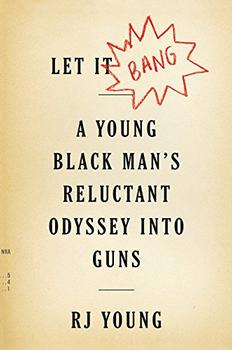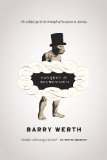Summary | Excerpt | Reading Guide | Reviews | Beyond the book | Read-Alikes | Genres & Themes | Author Bio

A Gilded Age Tale of Love and Deception Across the Color Line
by Martha A. SandweissIn Passing Strange, Martha A. Sandweiss takes a mountain of information and transforms it into a smooth, captivating narrative. Covering a century of American history, including geographical expansion, economic trends, and social values could have proved too plodding for one read; however, Ms. Sandweiss pulls it off seamlessly. With a thorough, straightforward style, she streamlines an era of historical data into an enjoyable, intriguing account of the unlikely love story of Clarence King (aka Charles Todd) and Ada Copeland.
 To untangle this intricate story, Sandweiss methodically walks us through the arbitrary and ever-shifting racial rules that reigned during the Gilded Age. "The practice of passing generally involves adopting a particular identity to move toward greater legal and social privilege," Sandweiss states. "It might mean taking on a different gender, or ethnic or national identity, but it most often involves the assumption of a different racial identity." While many light-skinned blacks attempted to cross into the white world of opportunity, few whites opted for the reverse. Sandweiss continues, "The laws that pinned racial identities on ancestry rather than appearance paradoxically made it possible for a light-skinned American like King to claim a black identity."
To untangle this intricate story, Sandweiss methodically walks us through the arbitrary and ever-shifting racial rules that reigned during the Gilded Age. "The practice of passing generally involves adopting a particular identity to move toward greater legal and social privilege," Sandweiss states. "It might mean taking on a different gender, or ethnic or national identity, but it most often involves the assumption of a different racial identity." While many light-skinned blacks attempted to cross into the white world of opportunity, few whites opted for the reverse. Sandweiss continues, "The laws that pinned racial identities on ancestry rather than appearance paradoxically made it possible for a light-skinned American like King to claim a black identity."
What makes this story so compelling is that in the late 1800's there was no comprehensible reason for a prominent white man of King's stature to want to "pass" as a black man. This was, after all, an Ivy League man who both "dined at the White House" and "belonged to Manhattan's most elite clubs." While many freed slaves had migrated north in search of a better life, they continued to suffer from gross injustice and severely restricted social and economic mobility. The level of prejudice was extreme: If Mr. King's secret were to be discovered, he stood to lose not only his social position, but his close family, friends, and business relationships as well. Regardless, when Clarence King crossed paths with slave-born Ada Copeland, he was willing to risk it all.
Though little is known about Ms. Copeland, one can infer that she was a woman who certainly could stand on her own. After leaving her loved ones behind to flee the Jim Crow south, Sandweiss surmises that Ada probably "embraced New York less as a place that acknowledged her past than as the place that let her leave it behind." Hence, when the talented and captivating Clarence King introduced himself as Pullman porter James Todd, Ada likely had fresh hopes of starting a new family of her own.
According to psychologists cited in Passing Strange, one needs three attributes to be a successful liar: the ability to plan ahead, a talent for managing one's own emotions, and the capacity to read the needs of other people. Though the word "liar" implies malicious intent, King doesn't come across as a scoundrel, but rather a man of deep spirituality with a profound love of family and nature. Always leading with his heart, his many correspondences reveal a man both passionate, yet emotionally strained as he tried to hold his opposing worlds together. During one extended absence he penned to Ada, "My darling, tell me all about yourself. I can see your dear face every night when I lay my head on the pillow and my prayers go up to Heaven for you and the little ones. I feel most lonely and miss you most when I put out the light at night and turn away from the work of the day." Living as both renowned geologist Clarence King and Pullman porter James Todd, King's dual life and lengthy absences were easily defensible. Nevertheless, such constant deception only exacerbated his recurring bouts of melancholia and fatigue which had dogged him since childhood.
Passing Strange is a solid work which pieces together the exotic life of an eccentric man. Differentiating fact from supposition, Ms. Sandweiss delivers her material with a cool, even hand, allowing the reader to step back from the fury of prejudice and interpret the material relevant to the times. Interspersed with the grand and poetic language of the day, the documented dialogue of King's correspondences lends literary panache to this captivating tale of love and the expansion of the American west.
Photo: Clarence King, undated
![]() This review was originally published in The BookBrowse Review in April 2009, and has been updated for the
February 2010 edition.
Click here to go to this issue.
This review was originally published in The BookBrowse Review in April 2009, and has been updated for the
February 2010 edition.
Click here to go to this issue.

If you liked Passing Strange, try these:

by RJ Young
Published 2018
The quest, funny and searing, of a young black man learning to shoot—a fascinating odyssey into race, guns, and self-protection in America

by Barry Werth
Published 2011
In Banquet at Delmonico’s, Barry Werth, the acclaimed author of The Scarlet Professor, draws readers inside the circle of philosophers, scientists, politicians, businessmen, clergymen, and scholars who brought Charles Darwin’s controversial ideas to America in the crucial years after the Civil War.
At times, our own light goes out, and is rekindled by a spark from another person.
Click Here to find out who said this, as well as discovering other famous literary quotes!
Your guide toexceptional books
BookBrowse seeks out and recommends the best in contemporary fiction and nonfiction—books that not only engage and entertain but also deepen our understanding of ourselves and the world around us.